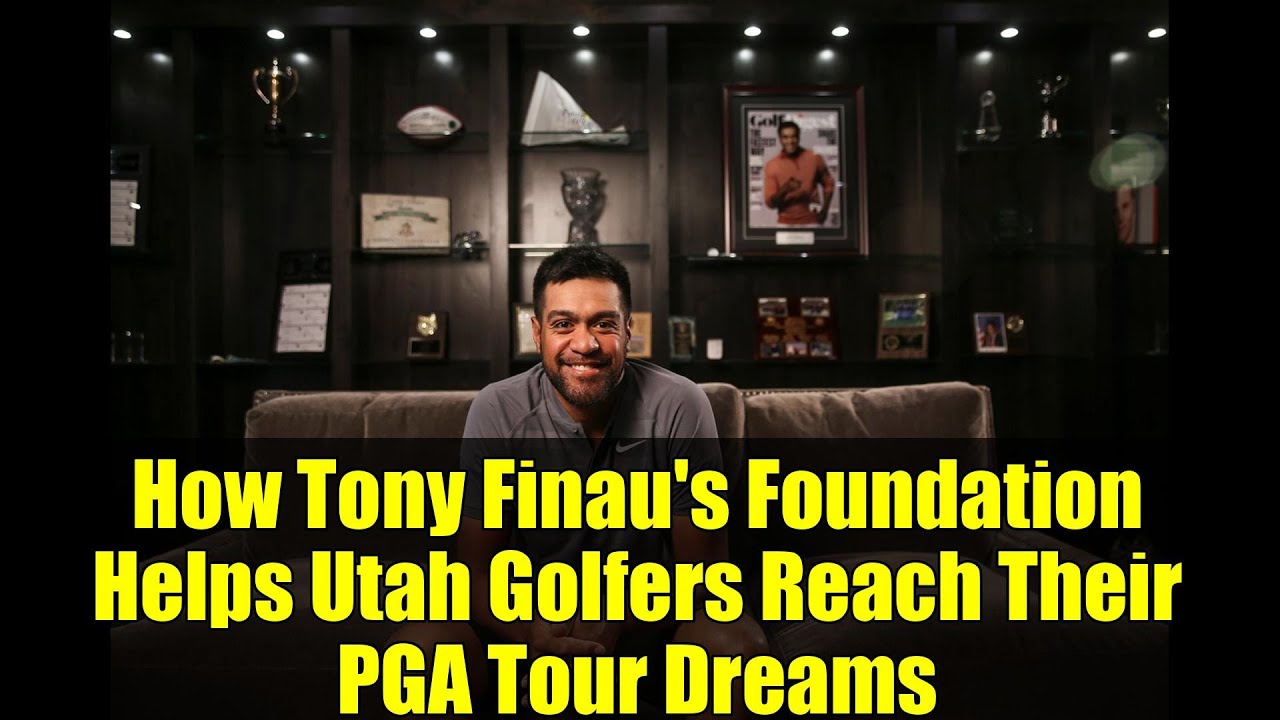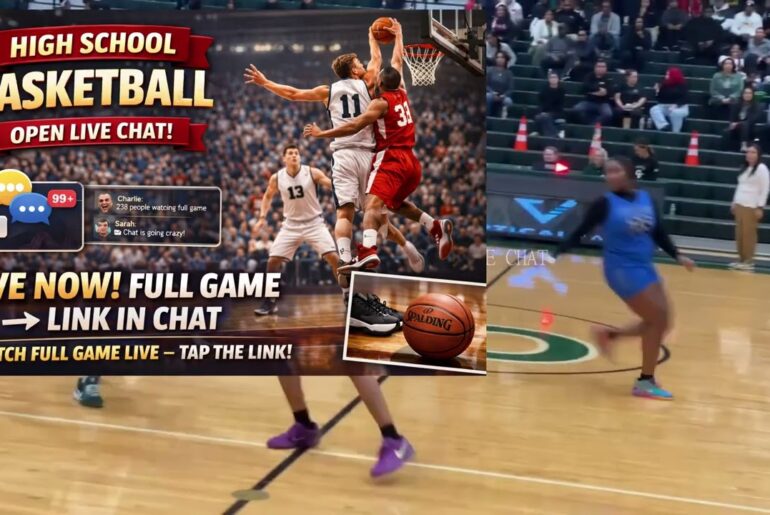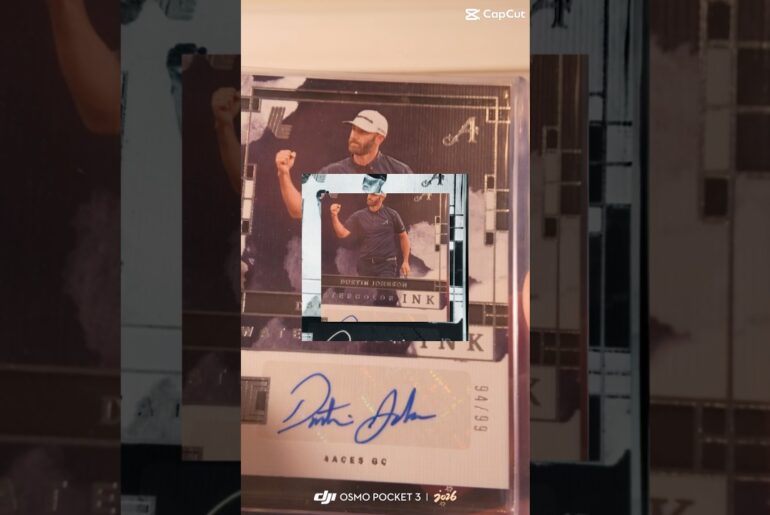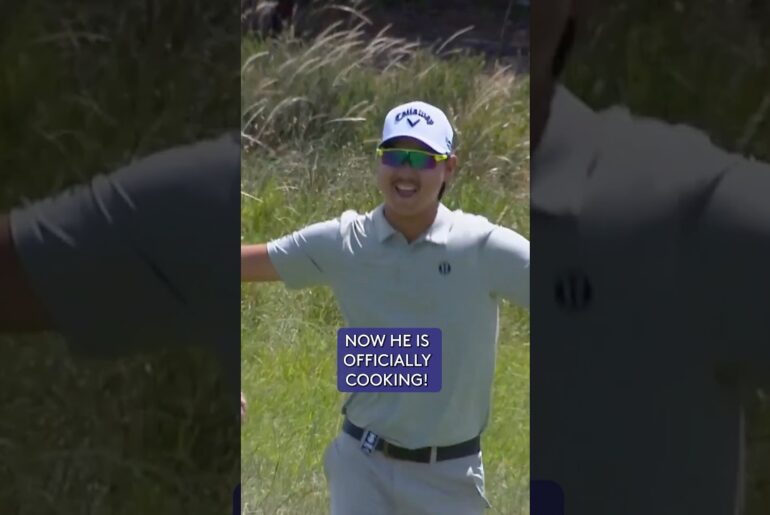Discover the inspiring story of Tony Finau’s Foundation and how the PGA Tour star is paying it forward to help aspiring professional golfers from Utah achieve their dreams.
From growing up in poverty in Rose Park, Salt Lake City, to becoming a six-time PGA Tour winner, Tony Finau never forgot his humble beginnings. After spending eight years grinding on mini-tours before making the PGA Tour, Finau started his foundation in 2015 to help the next generation of Utah golfers.
In this video, learn about:
– How Tony Finau’s childhood shaped his mission to help others
– The Tony Finau Foundation’s professional golfer support program
– Success stories of players like Mitchell Schow, Patrick Fishburn, and Peter Kuest
– How the foundation provides $30,000-$45,000 annually with no strings attached
– The application process and requirements for Utah golfers
– Real impact stories from the Utah Championship and Korn Ferry Tour
The foundation supports Utah-connected golfers (either from Utah or attended college there) as they pursue their professional dreams. With career earnings over $55 million, Finau continues to invest in the future of Utah golf while supporting literacy, basic needs, and mental health resources in his community.
This heartwarming story shows how one golfer’s success can create opportunities for an entire generation of aspiring professionals.
Sometimes the path to success in professional golf isn’t just about talent. It’s about the support and kindness that lift players when finances threaten to hold them back. Last month, Mitchell show made headlines by Monday qualifying for the Utah Championship on the Cornferry Tour, competing right in his home state. Excited, he shared the news with family and friends. But he didn’t stop there. He also reached out to Tony Feno, a highly respected sixtime PGA Tour winner and a major influence from many Utah golfers. But here’s where it gets really interesting. Fenel’s journey isn’t just about his personal wins on the tour. It’s about how he’s paying it forward to fellow pros who face obstacles he knows all too well. Being a professional golfer is costly. For many aspiring players, the financial burden is the biggest reason to reconsider their dreams. Tony Fenow knows this struggle inside out. Growing up in Rose Park, a tough neighborhood just outside Salt Lake City, Fenow shared a crowded home with six siblings. Hardly anything was affordable. So he and his brother Gipper practiced their swing by hitting balls into an old mattress in the family garage. A humble beginning to what would become an inspiring career. Tony took a bold step turning pro at just 17 years old. His break came when a local businessman paid a $50,000 entry fee for a $2 million putting contest in Las Vegas, putting both Tony and Gipper in the competition. Tony didn’t win the contest, but he earned enough to repay his backers and cover some of his costs. This small financial victory was crucial. It gave him the chance to launch his professional golf career. Fenow’s persistence through years of playing on millie tours, which often offer little prize money, showcases his resilience. It took him eight long years before he finally secured a spot on the PGA Tour. Now approaching his 36th birthday, Feno has never lost sight of where he came from or the hurdles he overcame. His experiences shaped a deep commitment to helping others chase their golf dreams. In 2015, Fenow established the Tony Phen Foundation, primarily focused on improving literacy, meeting basic human needs, and providing mental health support. It wasn’t until 2018 that the foundation expanded its mission to actively support professional golfers with strong Utah connections, either by birth or through college attendance. The very first beneficiaries were Patrick Fishburn and Peter Quest, both BYU alumni with roots in Utah. Fishburn, now a full PGA Tour member with over 50 career tour starts, credits Fenow’s foundation as instrumental in his career. He first met Feno playing junior golf together, and even at age 12, Feno was already helping him find his way. Financially, the foundation’s support gave Fishburn a key advantage to stay competitive in the cutthroat world of professional golf. After owning enough on the corn ferry tour to be self-sufficient, he graduated from the support program, highlighting how the foundation aims to create lasting impact rather than indefinite aid. Peter Quest echoes these sentiments, acknowledging the foundation as a valuable safety net, though he hopes he’ll never need to tap into it again. What’s particularly striking and might spark some debate is how Fenow manages to balance his busy career on the PGA tour with being a mentor and financial supporter to multiple upand cominging players, a rarity among active tour pros. Chelsea Fairborn, the foundation’s executive director, explains that the application process is simple. Golfers submit a cover letter, a resume, and any letters of recommendation they wish to include. From there, a board that features Fenow and prominent figures in Utah’s golf community carefully selects recipients. Once accepted, players commit to a minimum 2-year involvement and receive $30,000 to $45,000 annually for expenses. all with zero expectations of repayment or restrictions on how they spend the money. Currently, the foundation supports Mitchell Show, Connor How, and Carson Lundelle. Show himself admits that without this financial backing, he might not even be able to participate in Monday qualifiers, the gateway to bigger tournaments. After tying for 54th at the Utah Championship, Show remains hopeful about his future, knowing the foundation’s support is a vital part of keeping his dream alive. So, here’s a question to ponder. Should more established athletes like Tony Feno take on this role as mentors and funders for emerging talent? Some might argue it’s a gamecher, while others might see it as creating dependencies or favoritism. What do you think? Is this a model the professional golf community should embrace more widely? Or is the path to success better left to individual grit alone? Share your thoughts below because the story of paying it forward in sports is far from settled.







